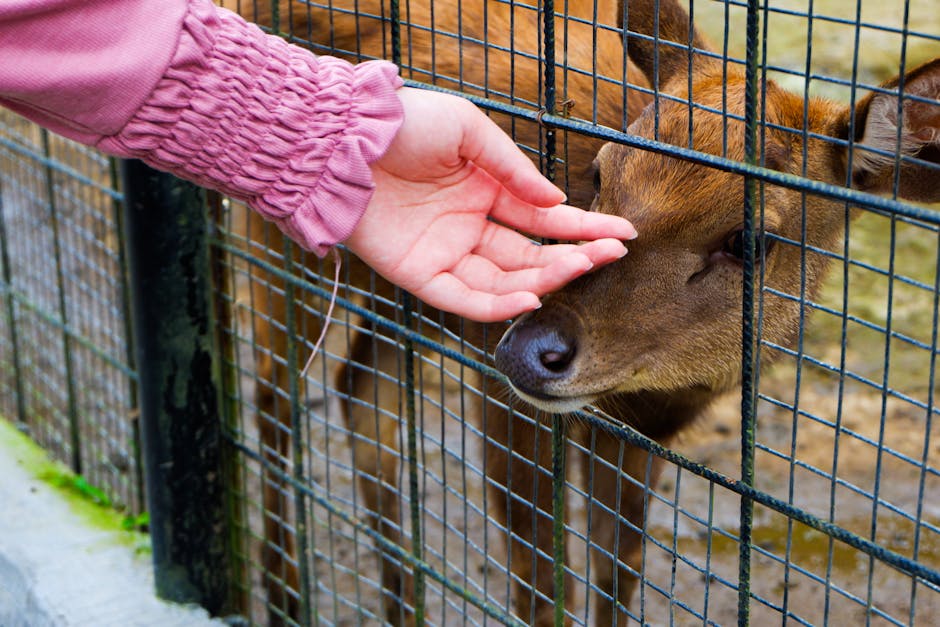Pet ownership, a deeply rewarding experience, often comes with a unique set of responsibilities. Beyond the emotional bonds forged, a critical aspect of responsible pet ownership lies in acknowledging and mitigating the environmental footprint. From food production to waste management, the choices we make as pet owners ripple outwards, impacting the planet. This article explores the various environmental considerations that underpin responsible pet care.
The lifecycle of a pet, from their food to their final care, demands attention to environmental factors. A crucial starting point lies in understanding the ecological implications of pet food. Commercial pet food production frequently involves the use of resources like corn, soy, and wheat crops that require extensive land use, impacting biodiversity and deforestation. Intensive farming practices, often associated with these ingredients, contribute to greenhouse gas emissions, water pollution, and habitat loss. A growing awareness of these concerns has spurred an industry shift towards more sustainable options. Organic pet food, featuring ingredients sourced from sustainably managed farms, is gaining popularity. Similarly, locally sourced or human-grade food can lessen transportation emissions.
Furthermore, the ingredients in pet food aren’t the only concern. The manufacturing process, packaging, and even the transportation of kibble or wet food all contribute to the carbon footprint. Seeking out brands that prioritize eco-friendly packaging, use recycled materials, and minimize transportation distances is an important aspect of sustainable pet ownership. Consumers can also actively participate in choosing sustainable food alternatives, such as home-cooked meals tailored to their pets’ dietary needs.
Beyond the diet, housing impacts extend to environmental concerns. A pet’s housing needs can influence their overall impact on the planet. Choosing to adopt a pet, rather than purchasing from a breeder, can reduce the demand for commercial breeding facilities. Adopting often saves lives and minimizes the need for environmentally taxing breeding practices. Also, a pet’s living space, whether a home or an apartment, can be designed with sustainable elements in mind. This includes using eco-friendly cleaning products and reducing water consumption during bath time.
Moreover, pet waste presents a multifaceted environmental challenge. Dog and cat waste, if not managed correctly, can contaminate water sources with harmful pathogens and pollutants. Responsible pet owners must take proactive steps to ensure appropriate waste disposal, using designated waste bins and ensuring proper sanitation practices. Composting pet waste, a sustainable alternative, offers a path to resource recovery, providing valuable nutrients for gardening.
The choice of pet breeds also holds environmental implications. Breeds that require significant resources, including high-quality food and specialized veterinary care, will naturally contribute more to the overall environmental footprint than low-maintenance breeds. Adopting a breed that aligns with individual lifestyle choices and resource availability minimizes the overall environmental impact.
Transportation, another unseen contributor to environmental damage, applies to pet owners. Owning a pet that necessitates frequent or extensive travel can introduce a significant carbon footprint, potentially exceeding the impact of certain goods or services. Sustainable travel options, or adopting a pet that can be cared for locally, should be carefully considered.
Veterinary care also plays a crucial role in this. Choosing ethical and environmentally conscious veterinary clinics that prioritize sustainable practices like reducing waste and using eco-friendly cleaning products is a conscious decision. Responsible disposal of veterinary medical waste and encouraging preventative care, reducing the need for frequent procedures, all contribute to a reduced environmental impact.
The effects of pet ownership extend beyond the immediate circle of the owner and pet. Their behavior impacts the local environment. Overpopulation of certain pets, sometimes a consequence of irresponsible breeding practices, can strain local ecosystems. Invasive species, originating from pet releases, further complicate these issues. The potential risks associated with pet releases necessitate responsible practices in managing pets.
In conclusion, environmental considerations are integral to responsible pet ownership. Pet owners can make conscious choices across various aspects of pet care, influencing the overall footprint they leave on the planet. From food choices and waste management to housing and breed selection, a thoughtful approach to these considerations is not just an ethical responsibility but a crucial step towards environmental sustainability. Adopting a conscious and eco-friendly approach to pet ownership is both commendable and necessary in today’s world.
